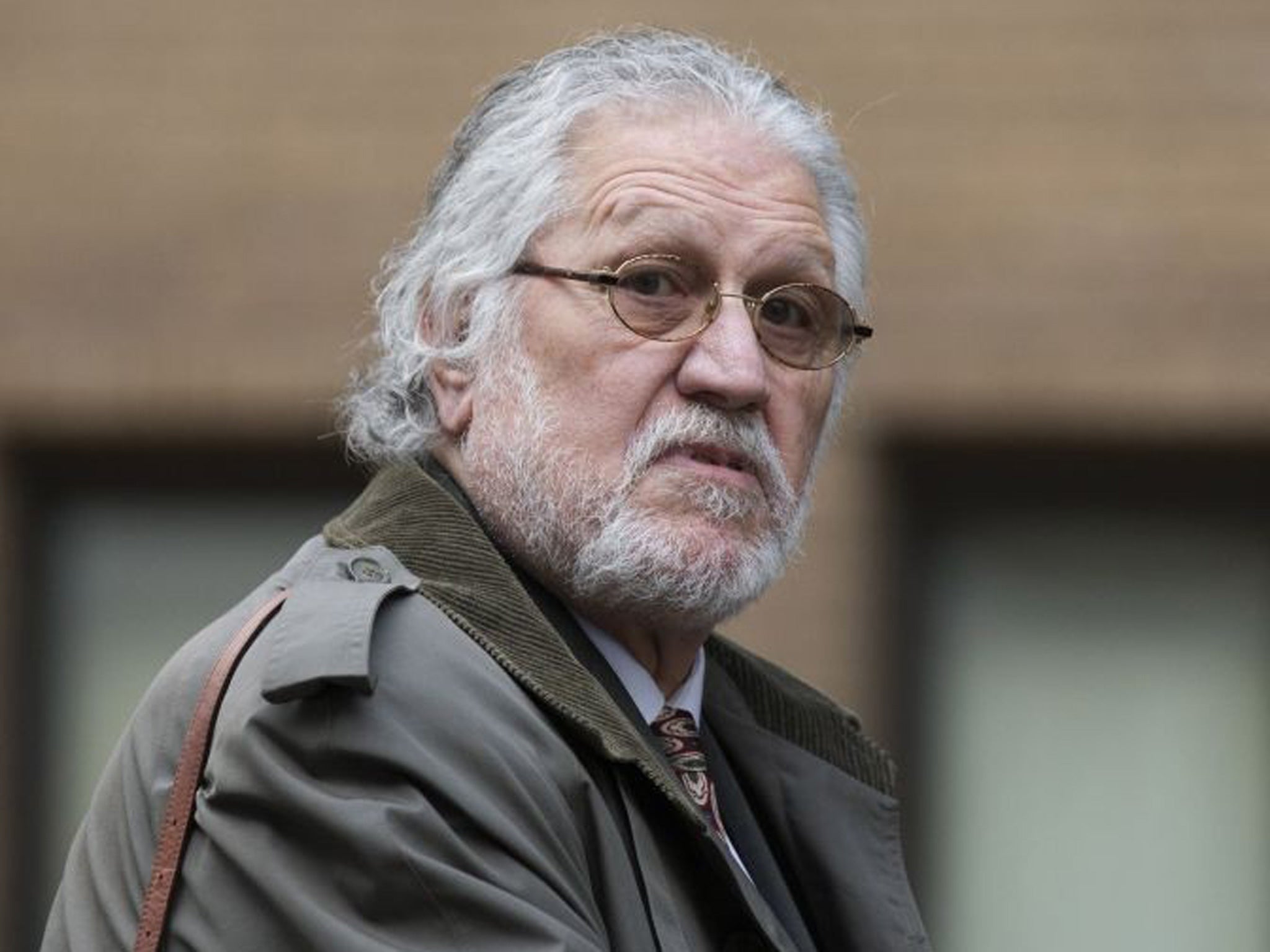Dave Lee Travis found not guilty: Verdict on veteran DJ leaves Operation Yewtree bereft of credibility
Vindication for ex-Radio 1 star as fellow accused Max Clifford and Rolf Harris wait in the wings

The decision to prosecute historic sex abuse cases involving celebrity defendants has been called into question after veteran DJ Dave Lee Travis was acquitted of 12 sexual assault charges in the first high-profile trial brought by Operation Yewtree.
The near-full courtroom vindication for the 68-year-old former Radio 1 DJ came in the first criminal trial brought after a £3m police investigation into historic sex abuse cases that stemmed from the exposure of Jimmy Savile as one of the country’s most prolific paedophiles.
Mr Travis’s legal team claimed that the DJ was targeted as a scapegoat after police and prosecutors missed numerous opportunities to bring Savile to justice during his decades of crime. The former Radio 1 DJ said he had lost his home and his reputation, in a case that his legal team claimed had been a witch-hunt based on a lie.
Flanked by Marianne, his wife of more than 40 years, Mr Travis told reporters outside court that he had been through “a year and a half of hell on this which included costing me so much money to pay out for my part of this trial”. “Lots of people are worse off than me; however I did lose my reputation as well which I may try to get back later,” he added.
Prosecutors will now have to decide if they will press for a retrial for two charges on which the jury could not decide verdicts: an alleged indecent assault on a stagehand in his dressing room while he appeared in the pantomime Aladdin in the early 1990s, and an alleged sexual assault on a journalist who interviewed him at his home in Mentmore, Buckinghamshire, in 2008. From the outset, Mr Travis has denied the allegations against him and claimed that he was “tactile” by nature. “If I like someone I will hug them and give them a kiss because the whole world needs that,” he told the court. “But nowadays you can’t do that apparently,” adding that half of the country would be in jail by now “if patting somebody’s bottom in the 1970s was a crime”.
The case – which follows the acquittal of Coronation Street actor Bill Roache last week – will inevitably lead to questions as to the ability of the criminal justice system to secure convictions in cases involving high-profile figures with allegations that in some cases go back decades.
Mr Travis’s barrister, Stephen Vullo, told jurors the defendant’s name had been sullied because police and the authorities had missed catching Savile. “There is no justice whatsoever in overreaction, bringing a 68-year-old man of impeccable character to this court and muddying his name to make us feel better about Jimmy Savile,” he told the court.
Sixteen men have been arrested under Operation Yewtree, which was set up after an ITV documentary that exposed Savile led to hundreds of people coming forward with further allegations of abuse.
Files have been handed to prosecutors in 11 of the cases, which have resulted in seven being discontinued. Trials are scheduled to start in the next two months of the publicist Max Clifford and the entertainer Rolf Harris, with other people remaining on bail while investigations continue.
The first man who was due to stand trial after a Yewtree investigation was found dead on the day the case was due to go to court last year. David Smith, 66, a former driver reputedly for the BBC, was a prolific paedophile with 22 previous convictions, who was due to answer allegations that he had raped a 12-year-old boy in the 1980s.
Prosecutors declined to comment on the Travis case before a hearing later this month which will decide whether he will face a retrial. David Cameron’s official spokesman said the Prime Minister continued to have confidence in the Crown Prosecution Service (CPS) in light of the not guilty verdicts for both Mr Travis and Mr Roache.
Operation Yewtree split its investigations into three strands into those involving Savile, those with Savile and others and those into allegations independent of Savile. Although Mr Travis knew Savile, he was investigated under the “others” strand that has led to the arrests of most of the high-profile suspects in the inquiry. Speaking outside court, Detective Chief Superintendent Keith Niven, who is leading Operation Yewtree, encouraged all victims to come forward and pledged “our commitment to support anyone who has been subjected to sexual abuse”.
Sixteen women gave evidence against Mr Travis during the trial. The charges, which related to 11 of the women, went back nearly 40 years with the latest in 2008.
“The Metropolitan Police take all allegations of sexual abuse very seriously,” said Det Chief Supt Niven.
“We fully investigate every case and once sufficient evidence is obtained investigators work with CPS lawyers and a decision whether to charge is made. In the case of Mr Griffin, the prosecution was brought, he was tried and the jury reached their decision.”
Human rights barrister, Barbara Hewson, questioned whether defendants such as Travis could have a fair trial given the time that has passed since the allegations.
“The original Yewtree operation was set up as a response to a moral panic created by the scandal of Jimmy Savile, the one person who cannot answer to anything,” she said.
